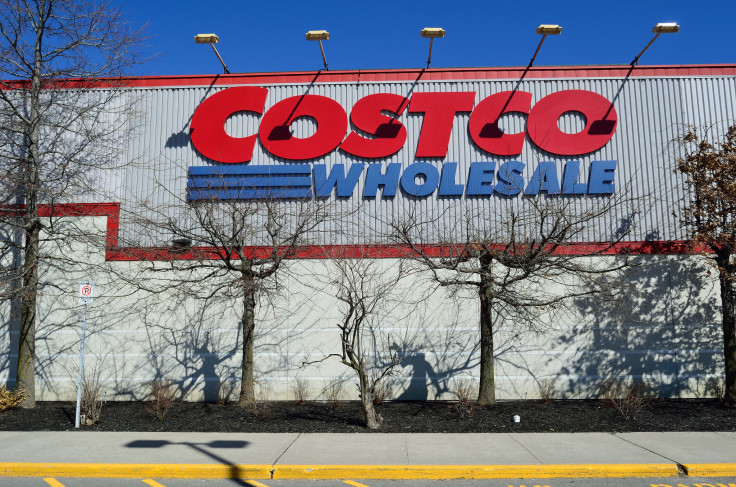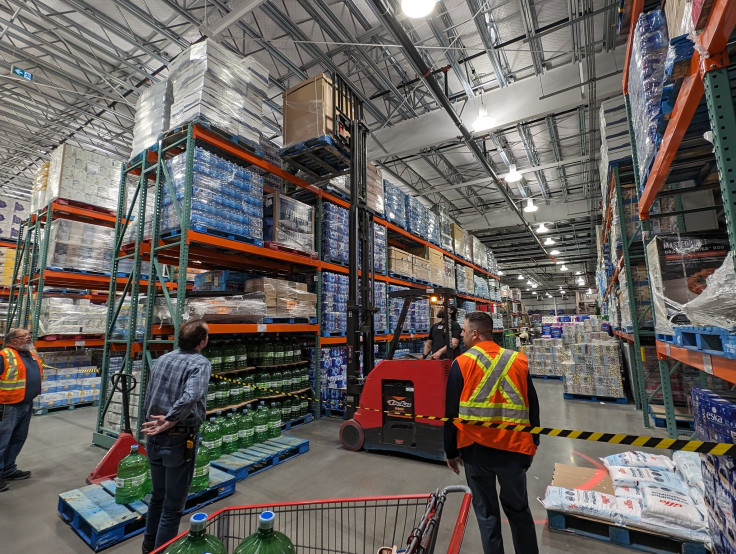Costco Stock: The Hidden Story of Slowing Sales, Returning Inflation, and a Secret War on Tariffs
Costco's growth faces new tests as inflation returns and tariffs quietly squeeze margins behind the scenes

Costco Wholesale has once again delivered solid earnings, cementing its reputation as a defensive retail giant.
But behind the upbeat numbers lies a more nuanced story—slowing sales growth, resurgent inflation, and a tariff environment that could weigh on profitability and test the resilience of its low-cost model.
Intense Earnings Mask Emerging Pressures
In its fourth-quarter results for fiscal year 2025, Costco reported earnings per share of $5.87 (£4.39), beating Wall Street expectations by a narrow margin. Revenue reached $86.16 billion (£64.37 billion), slightly above forecasts, and net income rose 11% year-on-year to $2.61 billion.
The company also announced plans to open 35 new warehouses in fiscal 2026, reinforcing its growth ambitions.
Yet analysts caution that the headline figures obscure underlying challenges. While comparable sales grew by 5.7% and e-commerce surged 13.6%, the pace of growth has moderated compared to previous years.
According to Costco's investor release, total company sales rose 8.0% for the quarter—a solid figure, but one that reflects a cooling trend amid broader economic uncertainty.
Inflation Returns and Tariffs Complicate the Picture

The re-emergence of inflation in 2025 has added new pressure to Costco's operating model. With widespread tariffs imposed by President Donald Trump on more than 90 countries, retailers are grappling with higher import costs and supply chain volatility. Analysts at Loop Capital warn that while Costco may ultimately benefit from its value proposition, the near-term impact on margins could be significant.
'We're assuming that tariffs negatively impact margins. Costco is slow to pass on cost increases, so there is certainly risk to even our lowered estimates in the near-term,' said analyst Laura Champine. Her fiscal 2025 earnings estimate of $18.03 (£13.47) per share is now 7 cents below consensus. 'Over time, Costco capitulates to market pricing trends to capture its normal margin levels,' she added.
The company's reluctance to immediately raise prices may preserve customer loyalty, but it also exposes Costco to short-term profitability risks. Champine noted that Costco has 'never executed through a tariff environment as volatile or extreme as this one,' underscoring the uncertainty ahead.
A Strategic Push on Value
Despite these headwinds, Costco's long-term strategy remains focused on value and scale. Analysts believe the retailer could gain market share in both grocery and general merchandise if inflation persists. Shoppers may increasingly turn to bulk purchases and staple goods, reinforcing Costco's appeal.
This approach may help Costco weather the storm. Still, it hinges on the company's ability to manage costs without alienating its membership base—a delicate balancing act in an inflationary and protectionist climate.
Market Reaction and Investor Sentiment
Costco's stock has slipped less than 1% year-to-date, outperforming the broader S&P 500, which is down amid tariff-induced volatility. Loop Capital has reiterated a 'buy' rating, though it lowered its price target from $1,150 (£859.16) to $1,045 (£780.71) per share—a sign of cautious optimism tempered by macroeconomic risks.
With a market capitalisation of over $418 billion (£312.29 billion), Costco remains one of the largest players in the consumer staples retail sector. However, investors are closely watching for signs of margin compression and shifts in consumer behaviour as inflation and tariffs reshape the retail landscape.
© Copyright IBTimes 2025. All rights reserved.





















